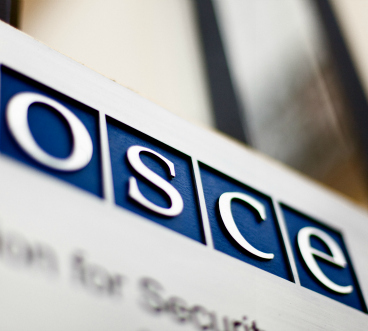
The Organization for Security and Cooperation in Europe (OSCE) has its origins in the early 1950s, when the Soviet Union first proposed the creation of an all-European security conference. In the mid-1960s the Warsaw Pact renewed calls for such a conference. In May 1969, the Government of Finland sent a memorandum to all European countries, the United States and Canada, offering Helsinki as a conference venue. Beginning in November 1972, representatives from the original 35 nations met for nearly three years to work out the arrangements and the framework for the conference, concluding their work in July 1975.
On August 1, 1975, the leaders of the original 35 participating States gathered in Helsinki and signed the Final Act of the Conference on Security and Cooperation in Europe. Also known as the Helsinki Accords, the Final Act is not a treaty, but rather a politically binding agreement consisting of three main sections informally known as “baskets,” adopted on the basis of consensus. This comprehensive Act contains a broad range of measures designed to enhance security and cooperation in the region extending from Vancouver to Vladivostok.
Since 1975, the number of countries signing the Helsinki Accords has expanded to 57, reflecting changes such as the breakup of the Soviet Union, Czechoslovakia and Yugoslavia.
Institutionalization of the Conference in the early 1990s led to its transformation to the Organization for Security and Cooperation in Europe, effective January 1995.
Today, the Organization for Security and Cooperation in Europe is engaged in standard setting in fields including military security, economic and environmental cooperation, and human rights and humanitarian concerns. In addition, the OSCE undertakes a variety of preventive diplomacy initiatives designed to prevent, manage and resolve conflict within and among the participating States.
The OSCE has its main office in Vienna, Austria, where weekly meetings of the Permanent Council are held. In addition, specialized seminars and meetings are convened in various locations and periodic consultations are held among Senior Officials, Ministers and Heads of State or Government.